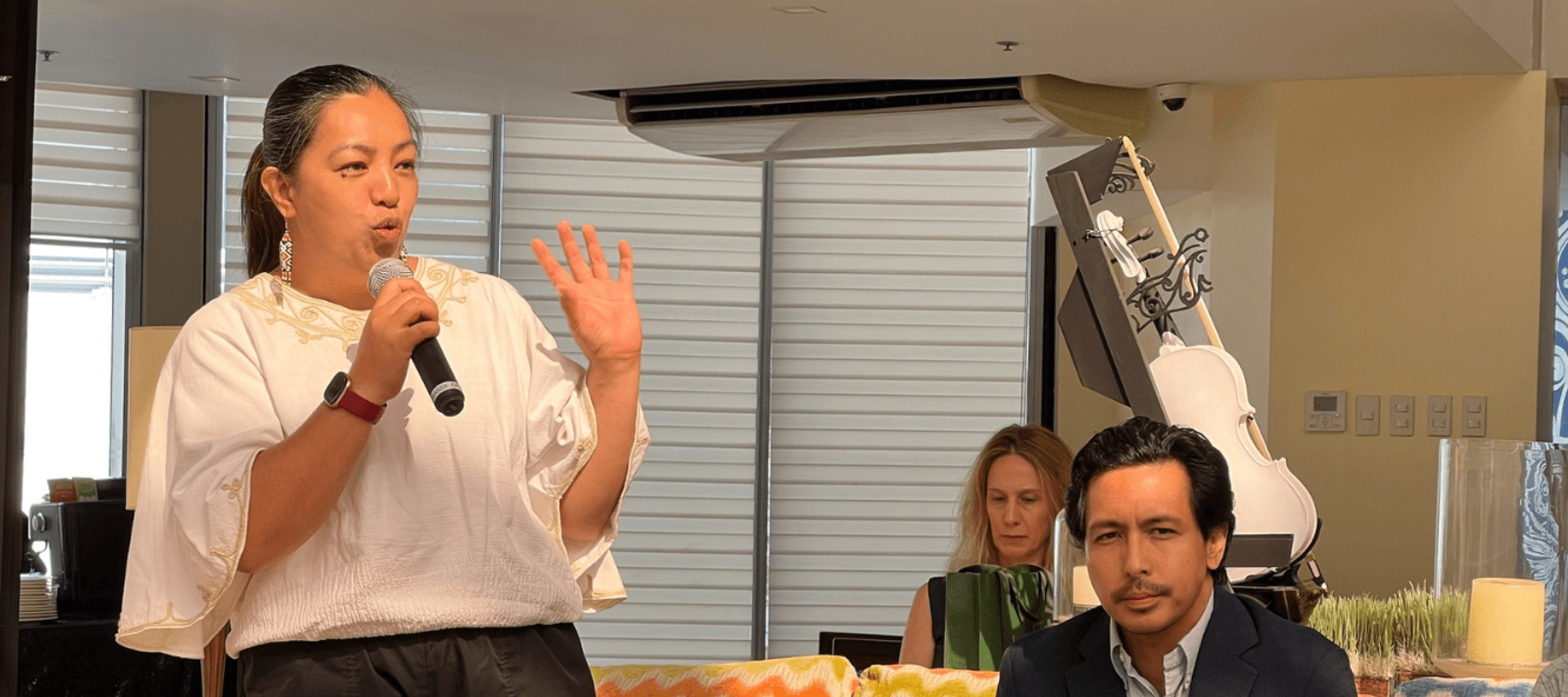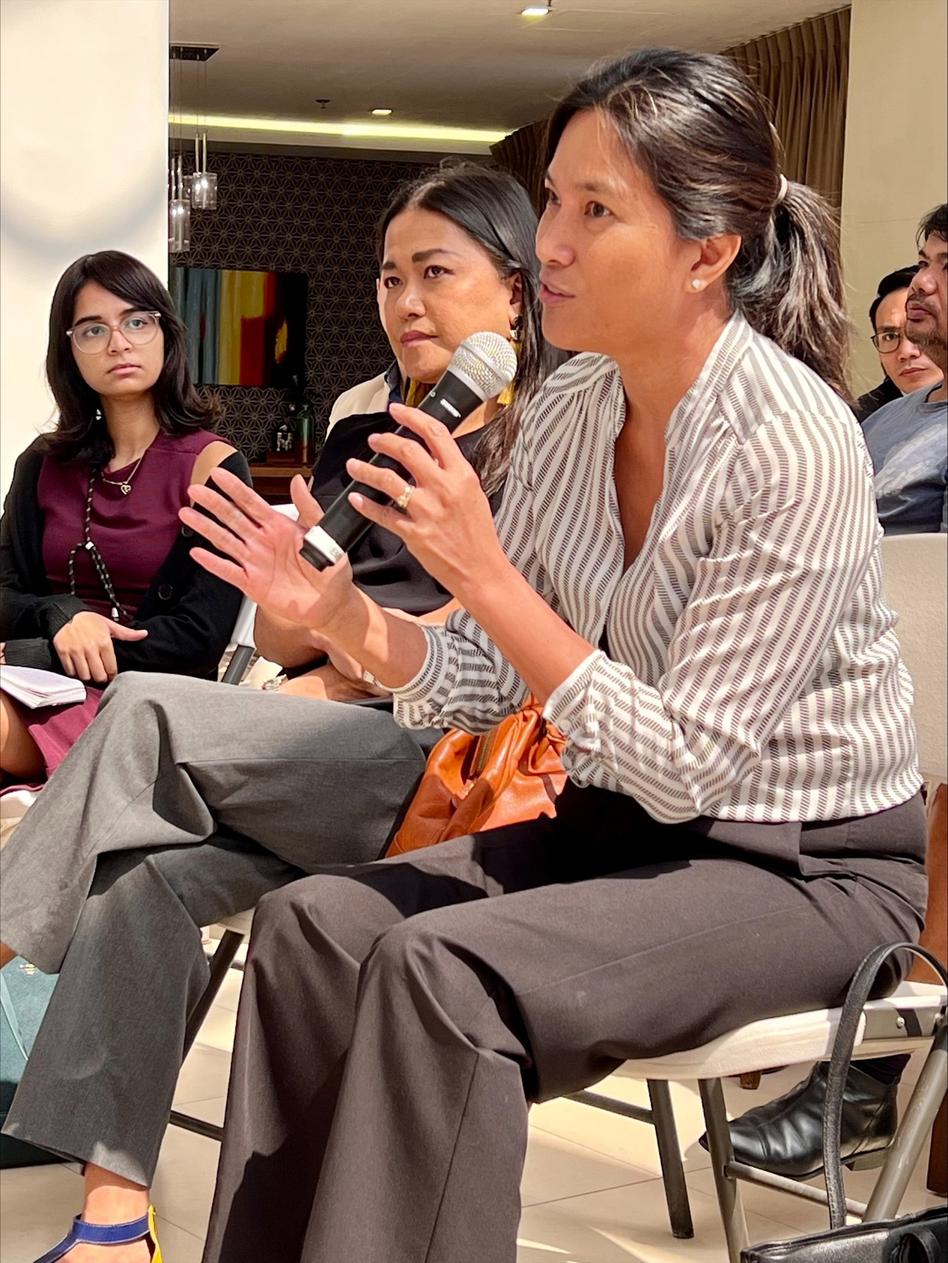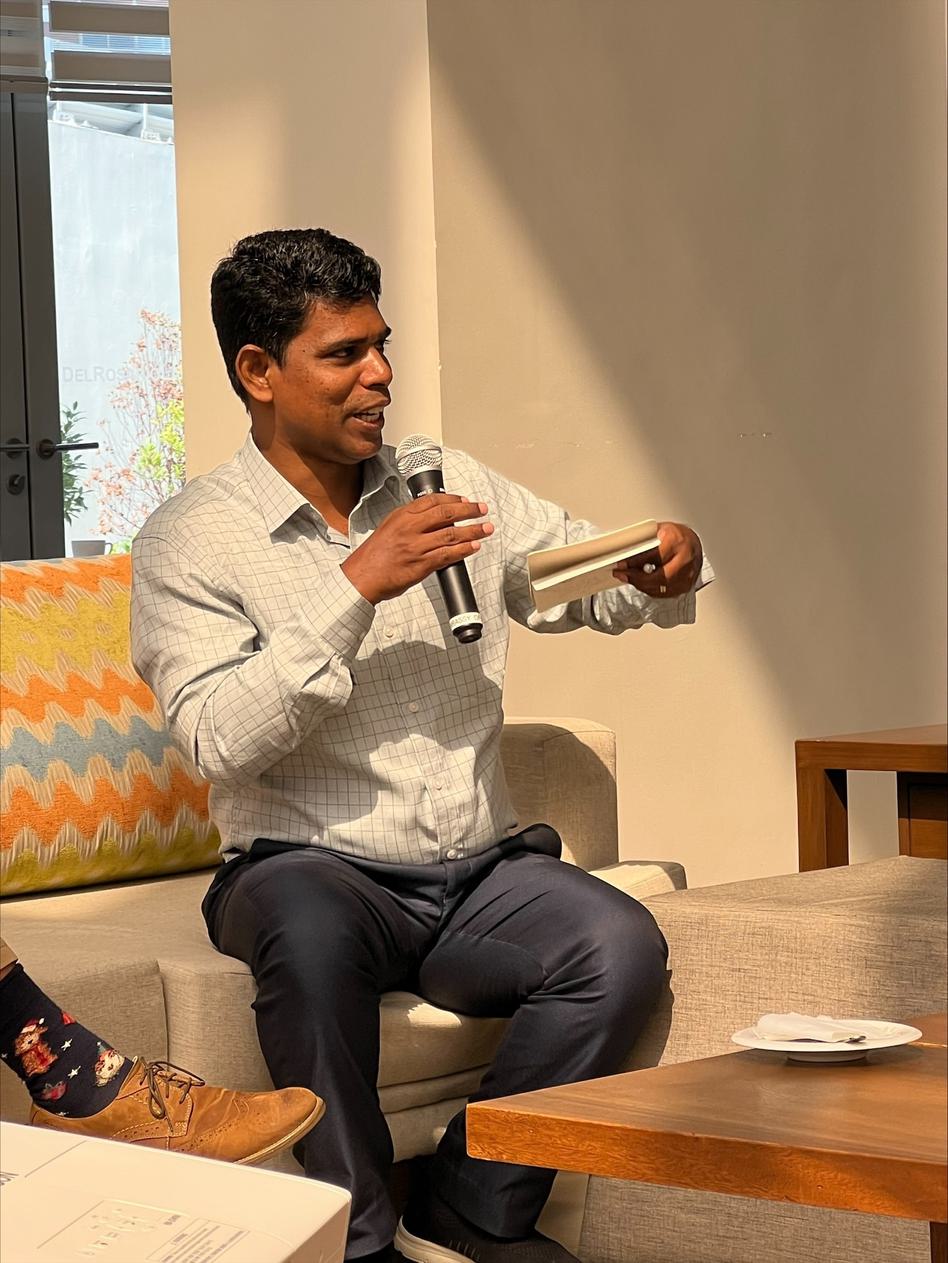Responsible renewables and community equity dialogue
23 November 2023

IHRB, The Rafto Foundation for Human Rights, and the Royal Norwegian Embassy convened a multi-stakeholder dialogue to explore how companies can deliver responsible renewable energy projects that create community equity for those affected by these projects. The dialogue was attended by approximately 30 representatives from regional, national and international indigenous organisations and other CSOs, energy developers, embassies, research institutions and think-tanks.

Speakers included:
- Robeliza Halip, Right Energy Partnership
- Pochoy Labog, Business and Human Rights Resource Centre, Philippines
- Saksham Nijhawan, Responsible Energy Initiative, India
- Johnson Jament, Association of Artisanal Fisheries, India
- Prabindra Shakya, Asia Indigenous Peoples Network on Extractive Industries and Energy
- Cynthia Morel, Forum for the Future
- Leif Preetzmann, Vestas Wind Systems
- Geir Michalsen, Norwegian Embassy
- Jostein Hole Kobbeltvedt, Rafto Foundation
The purpose of the rountable was to raise awareness and advance dialogue with renewable energy companies in the Philippines about the need for trust-building and robust, on-going indigenous community engagement around impact, assessment and shared prosperity; and to explore lessons from renewable energy projects and community equity in the wider region to inform current and future projects in the Philippines.
Indigenous communities are not just stakeholders, they are rights-holders. We have been protecting natural resources for centuries. Please learn from us.
Johnson Jament
Association of Artisanal Fisheries, India

Discussion highlights
- Rights-based partnerships between communities and companies are critical to the success of renewable projects. Trust-building takes time, there are no short cuts, and must be centred on meaningful consultation with impacted communities.
- Indigenous rights need to be at the heart of a fast and fair transition, based on shared prosperity, duty of care and fair negotiations.
- Importance of broader public understanding of human rights impacts in the context of renewable energy. Risk of general perception that ‘green energy’ is automatically good.
- Governments and companies need to rethink their prevailing top-down approach and consider indigenous communities as partners, not merely stakeholders, in renewable energy projects.
Within the Philippines context:
- These discussions are taking place against a backdrop of shrinking civil society space in the Philippines which is recognised as one of the most dangerous countries in the world for environmental and human rights defenders, along with Brazil, Colombia, Mexico and Honduras, according to Global Witness.
- Current state of development of the renewable energy sector and mining for transition minerals eg. nickel in Palawan is proving to be just another form of extraction from the perspective of indigenous communities. The promise of new ‘green’ projects bringing jobs is deflecting from the fundamental issues of recognition of indigenous rights, including land rights.
- Communities are rights-holders and potential project partners, not mere stakeholders. That change in perspective can result in better FPIC (Free, Prior, Informed Consent) processes.
- The current govt focus in the renewable energy sector in the Philippines is too top-down with very little involvement by indigenous representatives in planning processes. The focus is on energy security and access to energy, but much less on the safeguards of affected communities). Environmental Impact Assessments (EIAs) have turned into a checklist exercise. Questions raised as to whether indigenous communities can really access or engage effectively with company mechanisms around impact assessment and consultation – how reliable are these mechanisms?
- Planning and governance processes should respect indigenous governance systems which are based on collective decision-making, ensuring the voice of women, youth, disabled and other marginalised groups are adequately represented.
- New Microgrid law 2022 in the Philippines has the potential for shared prosperity / co-benefits, but only provides incentives for businesses to participate while offering little information on how communities can effectively engage.
- Community-managed micropower models are on the rise but no development yet in the Philippines in terms of partnerships with energy majors. Lessons to be learned here from Nepal, Canada, Chile.
The Free Prior and Informed Consent (FPIC) process
- Many indigenous representatives consider FPIC 2006 guidelines are too time-bound, overly procedural and expensive. These need updating in light of current realities. Procedural processes don’t respect indigenous governance systems but rather take a box-ticking checklist approach, often outsourced to consultants without adequate knowledge of FPIC or local contexts.
- If streamlined procedures were clear and aligned with self-determination principles, and if there were genuine transparency around the impact of the proposed project on indigenous lands, the FPIC process could be speeded up. There are examples of how this can happen to draw on from a number of indigenous organisations already working in this space.
Benefit-sharing isn’t a substitute for robust FPIC but it is part of it.
Prabindra Shakya
Asia Indigenous Peoples Network on Extractive Industries and Energy
Company-indigenous community relations
- Direct relationships between companies and indigenous communities are essential for trust-building, instead of using consultants as intermediaries.
- Indigenous communities need to be seen as partners, not merely stakeholders, and to be involved from the very outset of a project and throughout.
- Effective and reliable grievance mechanisms and transparent remediation processes are key to trust-building.
- Companies need to take pro-active steps to manage the power imbalances and ensure that indigenous representatives can come into negotiations on a much more equitable basis, providing good and transparent access to information and supporting ways to foster a better shared understanding of each other’s terms and respective knowledge bases.
- The definition of ‘host communities’ needs to be expanded to those communities affected upstream and downstream eg. forest communities upstream of hydro dams who are protecting the rivers. Indigenous communities have immense knowledge and wisdom regarding responsible and sustainable management of and respect for natural resources. Companies need to be learning from these traditional approaches.
- Investing in indigenous-led management of indigenous territory would be a win for management of natural resources for all as well as supporting the empowerment of women.
- There is a need for much more south-south exchange on indigenous-led/owned renewable energy projects, eg. Kalimantan (AMAN-TONIBUNG – IFAD working with SIBAT on indigenous-led initiatives). Right Energy Partnership and Responsible Energy Initiative are doing important work in this space of shared prosperity, co-ownership and collective action in the RE sector in India and beyond.
Lessons from hydro-power in Nepal
- Issues around what constitutes equitable compensation, especially in the context of high revenues from large hydro-power projects.
- FPIC is key for project design, all the way down to implementation but FPIC is not a substitute for benefit-sharing.
- Benefit-sharing mechanisms include: royalty mechanisms (legally binding through Electricity Act); equity investment which is increasingly practiced to generate capital and secure local consent.
- Investment in community development (including rural electrification and water access). No legal requirements but a policy that requires for companies to invest at least 0.5% of its construction budget in the community development plan.
- Support for local livelihoods and employment enhancement activities. No legal requirements so not enforceable.
Reimagining land use
- Solar and wind projects offer opportunities for creative thinking around shared uses of land, including more widespread adoption of agrivoltaics at scale.
- There is a need to re-evaluate land reclassification eg. barren land. Land which is fenced off for RE for 25+ years will become barren. Soil can lose fertility after 5 years if not used for crops or livestock. Important to move away from the practice of exclusionary use of land for RE generation where possible. Indigenous experience of land management offers immense opportunities for co-creation of land use opportunities to improve soil quality, local food security, water retention and carbon sequestration.
- Industry has an important role in driving innovative action here beyond policy compliance, if based on meaningful consultation and partnership with local communities.
Conclusion
Without genuine partnership between renewable energy companies and affected communities, the transition to a low carbon economy will be neither fast nor just. There is a huge opportunity for equitable benefit-sharing if built on the following principles; without these there will be a continuation of extraction of resources and value by companies and governments to the detriment of local communities, a costly absence of social license to operate and a missed opportunity for sustainable socio-economic empowerment of marginalised communities.
Three core principles of a fast and fair transition to clean energy:
- Shared prosperity: business and investment models that deliver long-term revenues to communities and workers through co-ownership models and equitable benefit-sharing approaches, as this blog demonstrates.
- Duty of care: the enforcement of companies’ human rights and environmental due diligence before investment and during operations is critical. The identification of human rights risks and an action plan to mitigate them builds trust and ensures it is not lost. Measures to protect the environment are imperative.
- Fair negotiations: Free, prior and informed consent for Indigenous peoples is enshrined in international law and must be respected in line with the recognition and protection of their rights to their lands, territories and resources and to self-determination. Companies also need to guarantee the protection of leaders who speak out against injustice or irresponsible investment – silencing and intimidation of these defenders must end.



